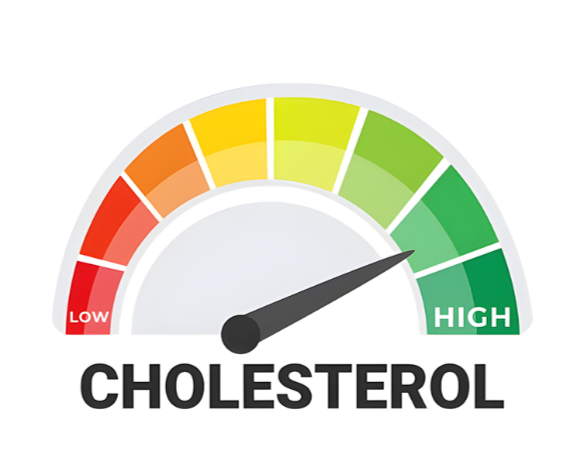Heart Health
What are the Risk Factors for Heart Health Issues?
While some risk factors for heart health issues are modifiable through lifestyle changes, others, such as age and family history, are beyond one’s control.
Understanding the risk factors associated with heart health issues is crucial for identifying individuals at higher risk and implementing preventive measures to mitigate potential cardiovascular problems. By recognizing these risk factors and taking proactive steps to address them, individuals can significantly reduce their likelihood of developing heart-related conditions and improve their overall cardiovascular health.
In this article, we will explore the various risk factors associated with heart health issues, both controllable and uncontrollable, and discuss strategies for minimizing their impact on heart health.
Controllable Risk Factors
Controllable risk factors for heart health issues are those aspects of our lifestyle and behavior that we have the power to modify or manage, ultimately reducing the likelihood of developing cardiovascular problems.
These factors include unhealthy dietary patterns, physical inactivity, smoking, excessive alcohol consumption, and unmanaged stress. Adopting a heart-healthy diet, characterized by plenty of fruits, vegetables, whole grains, and lean proteins, while minimizing saturated fats, sodium, and added sugars, can help lower cholesterol levels and blood pressure, thereby mitigating the risk of heart disease.
Regular physical activity plays a crucial role in maintaining a healthy weight, strengthening the heart and blood vessels, and improving overall cardiovascular function. Quitting smoking and moderating alcohol consumption significantly decrease the risk of heart disease and stroke.
Additionally, effectively managing stress through techniques like mindfulness, relaxation exercises, and seeking social support can alleviate strain on the heart and lower the likelihood of heart-related conditions. By addressing these controllable risk factors, individuals can proactively safeguard their heart health and enhance their overall well-being.
By taking proactive efforts and addressing the risk factors listed below, you can greatly lower your chances of having heart disease:

Diabetes
Diabetes is inextricably related to heart health issues due to its severe effect on the circulatory system. People with diabetes are at a much increased risk of having numerous heart diseases than those without diabetes. This increased risk is caused by multiple diabetes-related variables, including high blood sugar levels, aberrant lipid profiles, and hypertension, all of which contribute to the development of atherosclerosis.
Atherosclerosis, which is defined by the accumulation of fatty deposits in the arteries, narrows and hardens the arteries, limiting blood flow to the heart and raising the risk of a heart attack or stroke. Furthermore, diabetes-related heart muscle damage, combined with other cardiovascular risk factors such as hypertension and obesity, can result in coronary artery disease, heart failure, and peripheral artery disease.
Individuals with diabetes are also more likely to have underlying illnesses that exacerbate heart health issues, such as obesity, metabolic syndrome, and kidney disease. Effective diabetes management, including lifestyle changes, medication, and frequent medical treatment, is critical for lowering the risk of cardiac problems and improving overall cardiovascular health.
High Blood Pressure
Because of its negative effects on the cardiovascular system, high blood pressure, often known as hypertension, is inextricably related to heart health issues. When blood pressure is continuously high, it exerts more strain on the arteries, causing damage to the arterial walls over time.
This damage narrows and stiffens the arteries, making it difficult for blood to flow through them. As a result, the heart must work harder to circulate blood throughout the body, which can cause cardiac muscle hypertrophy (enlargement). Furthermore, high blood pressure hastens the process of atherosclerosis, which is the accumulation of plaque in the arteries, further restricting blood flow and increasing the risk of a heart attack, stroke, and other cardiovascular issues.
Furthermore, hypertension is a substantial risk factor for coronary artery disease, heart failure, and peripheral vascular disease. Managing blood pressure through lifestyle changes such as a good diet, regular exercise, stress management, and medication when needed is critical for preventing or lowering the risk of heart disease and enhancing overall heart health.
Regular blood pressure monitoring and getting medical assistance for hypertension control are critical measures toward sustaining cardiovascular health.

High Cholesterol Levels
High cholesterol levels are directly linked to heart health issues, providing a substantial risk to cardiovascular health. Cholesterol is a fatty molecule created by the liver and derived from specific meals. When there is an overabundance of cholesterol in the bloodstream, it can build up on the walls of arteries, causing plaque.
Over time, this plaque causes the arteries to constrict and harden, a condition known as atherosclerosis. As a result, blood flow to the heart may be reduced, raising the risk of coronary artery disease, heart attack, and stroke. Furthermore, excessive cholesterol levels might promote the production of blood clots, restricting blood flow to essential organs.
It’s vital to understand that not all cholesterol is bad; there are two types: low-density lipoprotein (LDL) and high-density lipoprotein (HDL). LDL cholesterol, often known as “bad” cholesterol, is linked to an increased risk of heart disease, whereas HDL cholesterol, or “good” cholesterol, helps eliminate LDL cholesterol from the system.
Managing cholesterol levels with a balanced diet, regular exercise, a healthy weight, and, if necessary, medication recommended by a healthcare expert is critical for lowering the risk of heart disease and preserving heart health in the long run. Regular cholesterol testing and the adoption of heart-healthy habits are critical steps toward promoting cardiovascular health.
Smoking
Smoking is closely linked to heart health issues, posing a major hazard to cardiovascular health. Tobacco smoke contains harmful substances that can harm the lining of arteries, resulting in the formation of fatty deposits, or plaque, on arterial walls.
Atherosclerosis is a process in which the arteries constrict and blood flow to the heart decreases, increasing the risk of heart disease, heart attack, and stroke. Also smoking promotes the creation of blood clots, which can clog blood vessels and cause cardiovascular issues.
Furthermore, smoking lowers high-density lipoprotein (HDL), the “good” cholesterol that aids in the removal of dangerous low-density lipoprotein (LDL) cholesterol from the bloodstream, raising the risk of heart disease. Furthermore, smoking raises blood pressure and heart rate, which puts additional strain on the cardiovascular system.
Quitting smoking is one of the best ways to reduce the risk of heart health issues and improve cardiovascular health in general. Quitting smoking lowers the risk of heart disease and its complications, improves blood circulation, and promotes a heart-healthy lifestyle.

Obesity
Obesity has a substantial impact on heart health, posing a variety of risks and consequences that can be damaging to cardiovascular well-being. Excess body weight, particularly fat collected around the abdomen, puts more strain on the heart and raises blood pressure, resulting in hypertension, a key risk factor for heart disease.
Moreover, obesity is strongly linked to dyslipidemia, which is defined by elevated levels of LDL cholesterol and triglycerides and decreased levels of HDL cholesterol, all of which contribute to atherosclerosis and raise the risk of heart attacks and strokes. Obesity also promotes insulin resistance and type 2 diabetes, which increases the risk of heart disease and other metabolic illnesses.
In addition, adipose tissue secretes inflammatory chemicals that promote chronic inflammation, which is a major cause of atherosclerosis and cardiovascular disease. Obesity is also associated with sleep apnea, a disorder marked by pauses in breathing during sleep that can strain the heart and increase the risk of hypertension and heart failure.
Addressing obesity through lifestyle changes such as eating a balanced diet, getting more physical exercise, and maintaining a healthy weight is critical for lowering the risk of heart health issues and improving overall cardiovascular health.
Sedentary lifestyle
A sedentary lifestyle is harmful to heart health because prolonged periods of physical inactivity can lead to a variety of cardiovascular problems. Regular physical activity is crucial for maintaining good cardiovascular function, but a sedentary lifestyle raises the risk of obesity, hypertension, high cholesterol, and type 2 diabetes, all of which contribute to heart disease.
Sitting for a lengthy amount of time lowers metabolism and impairs the body’s capacity to manage blood sugar and blood pressure adequately. Also, a lack of physical exercise weakens the heart muscle, hinders circulation, and adds to plaque buildup in the arteries, raising the risk of atherosclerosis, heart attacks, and stroke.
Moreover, sedentary activity is linked to higher levels of inflammation and oxidative stress, which damage blood vessels and contribute to the development of cardiovascular illnesses. Regular exercise and minimizing inactive time are important efforts that people may take to protect their heart health and lower their risk of cardiovascular problems connected with a sedentary lifestyle.
Uncontrollable Risk Factors
Uncontrollable risk factors for heart health issues are those features of a person’s health profile that cannot be changed or adjusted by lifestyle choices. Genetic predispositions, family history, and underlying medical disorders are frequently cited as contributing factors.
One key uncontrollable risk factor is age; as people become older, their chances of developing cardiac problems increase. Family history and genetics are particularly important, as those who have close relatives who have had heart disease are more likely to get the ailment themselves.
Ethnicity can also have an impact on heart health, with some ethnic groups being more predisposed to specific cardiovascular diseases. For example, African Americans are more likely to develop hypertension and stroke, but South Asians develop coronary artery disease at a younger age. Gender is another uncontrollable risk factor, with men having a higher risk of heart disease at a younger age, whereas women’s risk increases after menopause.
While these factors cannot be changed, becoming aware of their impact on heart health might encourage people to take proactive actions to reduce other modifiable risk factors and live healthier lifestyles.

Family History
An individual’s likelihood of getting heart health issues is significantly influenced by their family history. Genetics can have a substantial impact on the probability of developing cardiovascular disorders, as certain cardiac illnesses tend to run in families. If close relatives, such as parents or siblings, have a history of heart disease, heart attacks, strokes, or other similar disorders, the risk to other family members increases.
This elevated risk is due to a mix of genetic factors, shared lifestyle practices, and environmental effects within the family. Understanding one’s family medical history can be a useful tool for determining individual risk and guiding preventive steps.
While family history is an uncontrollable risk factor, being aware of its implications allows people to take proactive steps toward heart health, such as eating a heart-healthy diet, exercising regularly, and having regular check-ups with healthcare providers to monitor cardiovascular health.
Age
Age is a crucial component in heart health issues because the likelihood of having cardiovascular disorders increases with age. As people age, their hearts and blood arteries change, leaving them more susceptible to illnesses including hypertension, atherosclerosis, and heart disease.
The aging process can cause structural changes in the heart, such as heart muscle thickening, arterial stiffening, and plaque deposition inside blood vessels, all of which can contribute to reduced cardiac function and an increased risk of heart-related problems. Furthermore, age-related changes in lifestyle factors, such as reduced physical activity, poor food habits, and increased stress, might heighten the risk of heart health issues.
While age is an uncontrollable risk factor, living a healthy lifestyle, managing other risk factors, and getting regular medical care can help to reduce the impact of aging on heart health and promote overall cardiovascular well-being.

Gender
Gender has an important influence in heart health issues, with substantial disparities between men and women. Heart disease has always been associated with men; nevertheless, evidence shows that it also affects women, albeit in different ways.
Women tend to acquire heart disease later in life than males, usually after menopause, when estrogen levels drop. In addition, women may have atypical symptoms such as fatigue, shortness of breath, and nausea, which can be missed or misconstrued, resulting in delayed diagnosis and treatment. Hormonal variations during menstruation, pregnancy, and menopause have an impact on heart health by influencing blood pressure and cholesterol levels.
Furthermore, some illnesses during pregnancy, such as gestational diabetes and preeclampsia, might raise a woman’s chance of having heart disease later in life. Recognizing these gender-specific risk factors and implementing targeted preventive measures and healthcare treatments are critical for enhancing heart health and lowering the burden of cardiovascular disease in both men and women.
Ethnicity
Ethnicity is a significant factor in heart health issues, with discrepancies reported among ethnic groups. According to studies, certain ethnicities are more likely to acquire heart disease than others. People of African American, Hispanic, South Asian, and Indigenous origin, for example, are more prone to acquire hypertension, diabetes, and obesity, all of which are major risk factors for heart disease.
These discrepancies can be explained by a mix of genetic predispositions, socioeconomic status, cultural influences, and access to healthcare. Additionally, ethnic minorities may experience challenges to getting excellent healthcare, resulting in inequities in the prevention, diagnosis, and treatment of heart disease.
Recognizing and treating ethnic differences is critical for delivering targeted therapies and improving heart health outcomes in various communities. Efforts to raise awareness, expand access to healthcare services, and customize preventative methods to specific ethnic communities can assist to reduce gaps and improve heart health equity for all.
Disclaimer: Please note that Discoverybody has taken great care to ensure that all information provided is comprehensive and up-to-date. However, you should not use this article as a substitute for the expertise that a licensed healthcare professional can offer. It’s always a good idea to talk to your doctor before taking any medication.
Sources expanded:
Heart Disease Risk Factors. (n.d.). https://www.mclaren.org/main/heart-disease-risk-factors
Diabetes, Heart Disease, & Stroke. (2023, June 7). National Institute of Diabetes and Digestive and Kidney Diseases. https://www.niddk.nih.gov/health-information/diabetes/overview/preventing-problems/heart-disease-stroke
Diabetes and Your Heart. (2022, June 20). Centers for Disease Control and Prevention. https://www.cdc.gov/diabetes/library/features/diabetes-and-heart.html
Hypertension. (2023, March 16). https://www.who.int/news-room/fact-sheets/detail/hypertension/?gad_source=1&gclid=CjwKCAjwkuqvBhAQEiwA65XxQOcPsDe6pNMFoChlZqEoQ5ofZ3cJyfeLoTWisGfPK9tgCWs1Pyk3ABoC7gMQAvD_BwE
Professional, C. C. M. (n.d.). High Cholesterol Diseases. Cleveland Clinic. https://my.clevelandclinic.org/health/articles/11918-cholesterol-high-cholesterol-diseases
Holland, K. (2022, January 28). Can Smoking Affect Your Cholesterol? Healthline. https://www.healthline.com/health/smoking-and-cholesterol#summary
How Smoking Affects the Heart and Blood Vessels | NHLBI, NIH. (2022, March 24). NHLBI, NIH. https://www.nhlbi.nih.gov/health/heart/smoking
Obesity. (n.d.). British Heart Foundation. https://www.bhf.org.uk/informationsupport/risk-factors/obesity#:~:text=How%20does%20obesity%20increase%20the%20risk%20of%20heart%20and%20circulatory%20diseases%3F&text=Excess%20weight%20can%20lead%20to,lead%20to%20a%20heart%20attack.
Sleep Apnea and Heart Health. (2023, August 17). www.heart.org. https://www.heart.org/en/health-topics/sleep-disorders/sleep-apnea-and-heart-disease-stroke
Physical inactivity. (n.d.). British Heart Foundation. https://www.bhf.org.uk/informationsupport/risk-factors/physical-inactivity
Family history and heart disease | Heart Foundation. (n.d.). https://www.heartfoundation.org.au/bundles/your-heart/family-history-and-heart-disease#:~:text=A%20family%20history%20could%20increase,in%20a%20number%20of%20ways.&text=You%20could%27ve%20inherited%20genes,your%20chances%20of%20developing%20it.
Aging changes in the heart and blood vessels: MedlinePlus Medical Encyclopedia. (n.d.). https://medlineplus.gov/ency/article/004006.htm
Why are Women at Higher Risk than Men for Heart Disease? (2018, February 12). https://www.beaumont.org/health-wellness/blogs/why-are-women-at-higher-risk-than-men-for-heart-disease
Professional, C. C. M. (n.d.). How Race and Ethnicity Impact Heart Disease. Cleveland Clinic. https://my.clevelandclinic.org/health/articles/23051-ethnicity-and-heart-disease
Villines, Z. (2021, August 23). Cardiovascular disease and race: Causes. https://www.medicalnewstoday.com/articles/cardiovascular-disease-and-race#risk-factors
Trusted Health, Wellness, and Medical advice for your well-being



